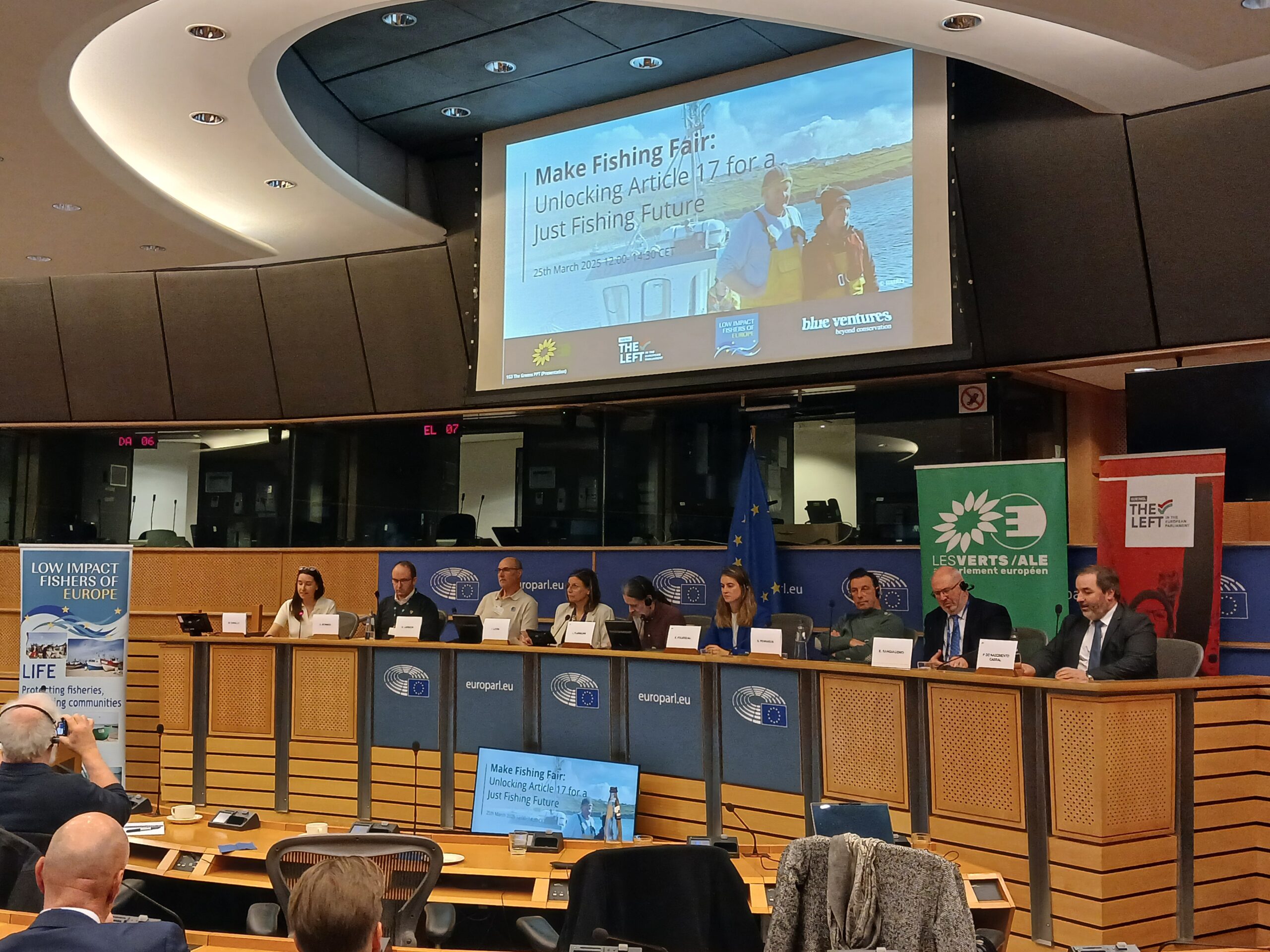Fairness for the Forgotten Fleet: MEPs and Small-Scale Fishers Challenge a Distorted Sea

A delegation of small-scale fishers from 5 EU countries and the UK, Members of the European Parliament and key stakeholders came together at the European Parliament to grapple with the issues of fair access to resources and rewarding and supporting low impact fishing practices with additional opportunities and finance. The event, organised by the Low Impact Fishers of Europe and Blue Ventures and co-hosted by MEPs Isabella Lövin (The Greens), Emma Fourreau, and Luke Ming Flanagan (The Left), featured contributions from MEPs Paulo Do Nascimento Cabral (EPP), Eric Sargiacomo (S&D), and representatives of the European Commission. It served as a valuable opportunity to spotlight the vital yet often overlooked role of small-scale fishers—the “forgotten fleet”—at a key moment when the EU is conducting a public consultation on the effectiveness of the Common Fisheries Policy (CFP) regulation.
The discussions centred on the ongoing injustices faced by small-scale fishers, who continue to be disadvantaged by an unfair system. The disproportionate allocation of quotas based on historic track records favours large industry players, and transfers between multinational fishing companies across different Member States complicate the identification of ownership structures, increasing the opacity of the system. The closure of targeted fishing for high-value species like cod in the Baltic and pollack in the Atlantic—while by-catch remains permitted, as pointed out by Swedish and Irish fishers on the panel— highlights deep inequalities in fisheries management, leaving small-scale fishers struggling to sustain their livelihoods. “Today, the species that sustain our diverse small-scale fisheries have significantly declined, and even when stocks are abundant, as in the case of bluefin tuna, quota distribution remains opaque and unfair” stated Gwen Pennarun, President of the Low Impact Fishers of Europe.
The current CFP, shaped by the reform a decade ago, already contains the necessary mechanisms to ensure a fair and balanced system—most notably, Article 17. This provision mandates that EU Member States allocate fishing opportunities based on transparent and objective environmental, social, and economic criteria. However, despite its potential, it has remained only partially implemented, hindering the realisation of its intended benefits. “I was deeply involved in developing the principles of Article 17 in the CFP, and it’s clear that the expectations have not been met by the member states.” – explains MEP Isabella Lövin – “Large, unselective trawlers continue to dominate our fisheries, while coastal communities and low-impact fishers aren’t getting the preferential access they were promised. Ten years later, I have to say, I’m really disappointed with the results”.
The discussion made it clear that without decisive action from EU institutions, particularly the European Commission, the commitments enshrined in Article 17 will remain largely theoretical. “(…) Full and effective implementation of Article 17 requires more than the use of transparent and objective criteria by Member States when allocating fishing opportunities. It requires concrete incentives for low impact fishing practices that make fishing opportunities genuinely accessible in practice, and not just in theory, to the small scale fleet, which makes up the vast majority of the EU and the Irish fishing fleets” stated MEP Luke Ming Flanagan.
To bridge the gap between policy and practice, a binding implementation plan is essential to ensure that fishing opportunities are allocated fairly and sustainably, in line with environmental, social, and economic criteria. Strengthening the role of EU institutions in this process is not just a matter of enforcement—it is a crucial step toward protecting small-scale fishers, safeguarding marine ecosystems, and upholding the EU’s broader sustainability commitments. “For years, fishing opportunities have been unequally distributed, promoting the interest of industrial fishing to the detriment of small-scale fishers and the marine environment. This has to change. The UNOC in June and the upcoming EU Ocean Pact constitute a momentum towards putting the rights of small-scale fishers and the transition to low impact fisheries on the top of the agenda” emphasized MEP Emma Fourreau, who concluded the event by outlining a vision for the future.

